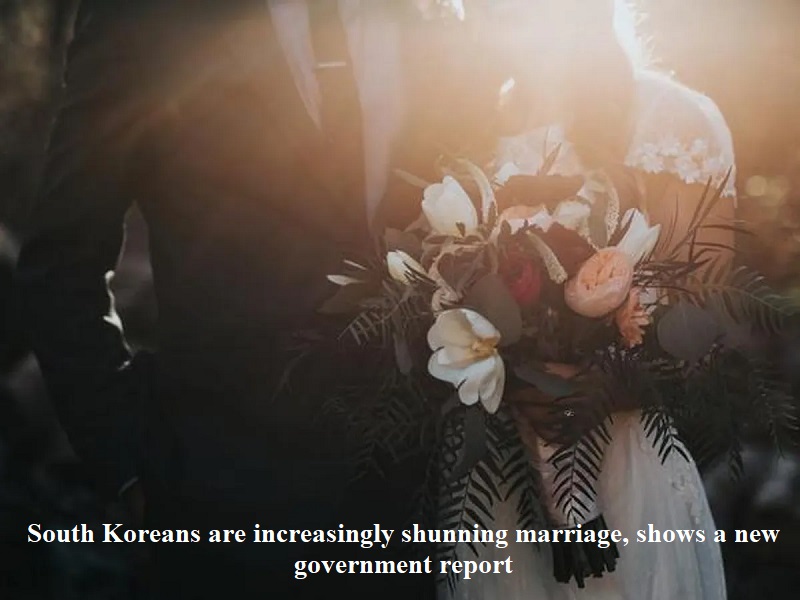
A recent government report indicates that an increasing number of South Koreans are turning away from the idea of marriage, posing demographic challenges for the nation already grappling with an aging population.
Released on Monday (August 28), the report reveals that only one-third of South Koreans hold a positive view of marriage. This trend, which has seen significant acceleration over the last decade, raises concerns about the country’s demographic landscape.
According to the data from Statistics Korea, just 36.4 percent of South Koreans aged 19 to 34 expressed a desire to get married. This figure marks a steep decline from 56.5 percent in 2012.
The report identifies economic worries, particularly related to the soaring costs of living and unaffordable housing, as key contributors to the diminishing interest in marriage. Respondents surveyed in the previous year cited financial constraints as a primary factor preventing them from getting married, while some even questioned the necessity of marriage altogether.
Interestingly, among those who maintained a positive perception of marriage, a majority were men, whereas only 28 percent of women responded favorably.
South Korea has even coined a term, “bihon,” to describe women who choose to remain unmarried or single.
The Organisation for Economic Co-operation and Development (OECD) suggests that the increase in women opting for singlehood could be attributed to their advancements in education and the professional realm. These factors have raised the “opportunity cost of marriage” for women compared to previous generations.
Persistent gender stereotypes also play a role, as getting married or having children often requires women to make compromises in their careers or education. This is exacerbated by the challenges women face when returning to work after giving birth.
Beyond the declining interest in marriage, the report from Statistics Korea highlights a growing trend of dismissiveness towards parenthood. Since 2018, there has been an increasing number of people who choose to remain child-free. Last year, more than half of the surveyed individuals indicated that they do not perceive a need to have children.
This trend raises alarm in South Korea, where the fertility rate dropped to a historic low of 0.78 in the previous year. The OECD identifies a fertility rate of 2.1 as necessary for maintaining a stable population; therefore, South Korea’s fertility rate stands as the lowest in the world.

Post Your Comments